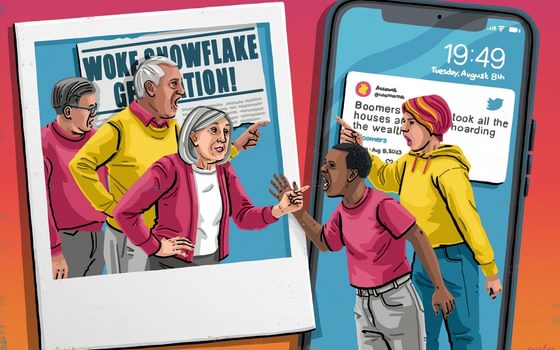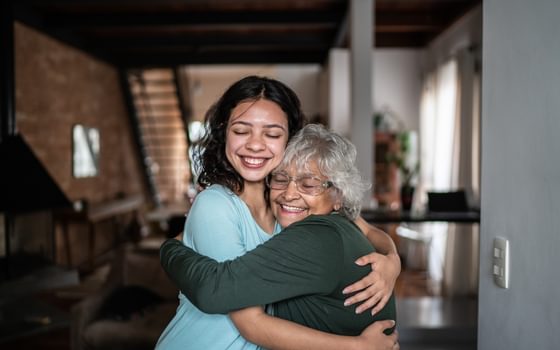Let’s dance: how club culture can create community mental health support
An interview with the founder of MISERY, a sober clubnight for queer, trans and intersex people of colour
16 December 2020
MISERY is a mental health collective and sober clubnight for queer, trans and intersex Black people and people of colour (QTIBPOC) based in London. Parties like MISERY, together with Hungama and Pxssy Palace, are the descendants of spaces set up to empower some of the most oppressed communities, who have also been at the very sharp end of austerity, racism and homophobia.
Shakti Disco and Club Kali, in London in 1988 and 1999 respectively, mobilised and celebrated South Asian queer people looking for a safe space to adorn themselves with brightly coloured saaris, jewels and makeup, and dance. Shakti Disco grew out of the need to fundraise to support LGBTQ South Asians struggling with family rejection and homelessness. Spaces like these popped up all over the country, with Zindagi in Manchester (2001) and Saathi in Birmingham (2003) addressing community issues like domestic violence, homophobia and racism. They offered a few hours of freedom away from family and work, where being both gay and Asian was often unacceptable. They also became a place to make friendships — a new chosen family where you relate through dance, music and lots of glitter.
The unique energy that MISERY brings is its total embrace of mental health and healing. It’s sad girl energy, it’s sober and authentic, vulnerable but actually also pretty fun in many ways. It’s a night which has touched spaces across London – from the carpet floor of Bethnal Green Working Men’s Club to the Yard Theatre in Hackney Wick. It fills a huge gap of much needed mental health and community support in an incredibly crowded and busy, yet isolating city. In a period of overwork and stress, where cuts to support services are acute, privatisation is rabid, and gentrification continues to fragment our communities, the need for relational healing and community is a huge source of power and stability for many.
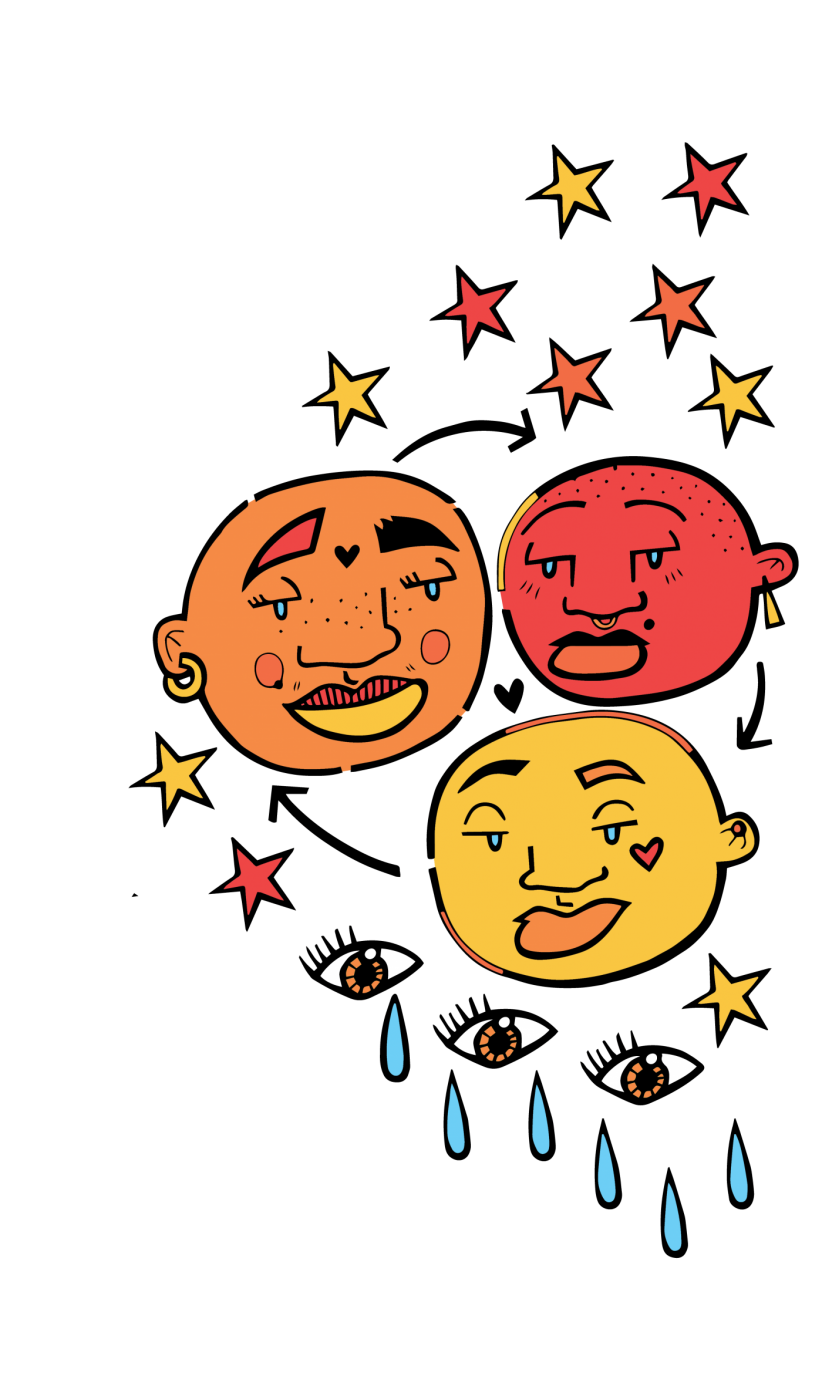
The outlandish hedonism of queer parties is wonderful. But the beautiful stripper heels, striking colourful makeup and dance music are usually also accompanied by cocktails and maybe other substances. There’s no hate for that here, it’s fun to indulge. Let’s trash what’s respectable and get inebriated if that’s what you’d like. But there are also addiction issues within the community. It’s important to create a space to question a society which relies so heavily on dissociation to function.
MISERY creates that space. There’s no dissociation here. There’s plenty of dancing, amazing music and outfits, but in this party everyone is encouraged to fully tune in and engage all our senses in their wide awake and sober state. They use soothing activities to ground people in these unstable times. Attendees can participate in traumainformed body work, curated especially to stretch and shake out the stress of exploitation and systems of oppression. They can run their hands through bright purple sparkly sand to build their own sandcastle utopia. They can learn about the spiritual magic of herbs like mugwort or lavender as they bind the herbs to use in tea or to cleanse their homes. They can totally transcend with delicious warming chai or some spicy buttery samosas. Mashallah.
The subversion of respectability runs through MISERY in many thoughtful ways. MISERY is also about breaking away from a heightened sense of perfectionism and performativity within capitalism today, which discriminates against the disabled and induces intense anxiety for all of us, especially the QTIBPOC community. We are told we need perfect grades, perfect neurofunctions, perfect English and perfect bodies.
Here I chat to the founder and mother of MISERY, Aisha Mirza, about this spirit of the party, where MISERY came from, and what it means to her.
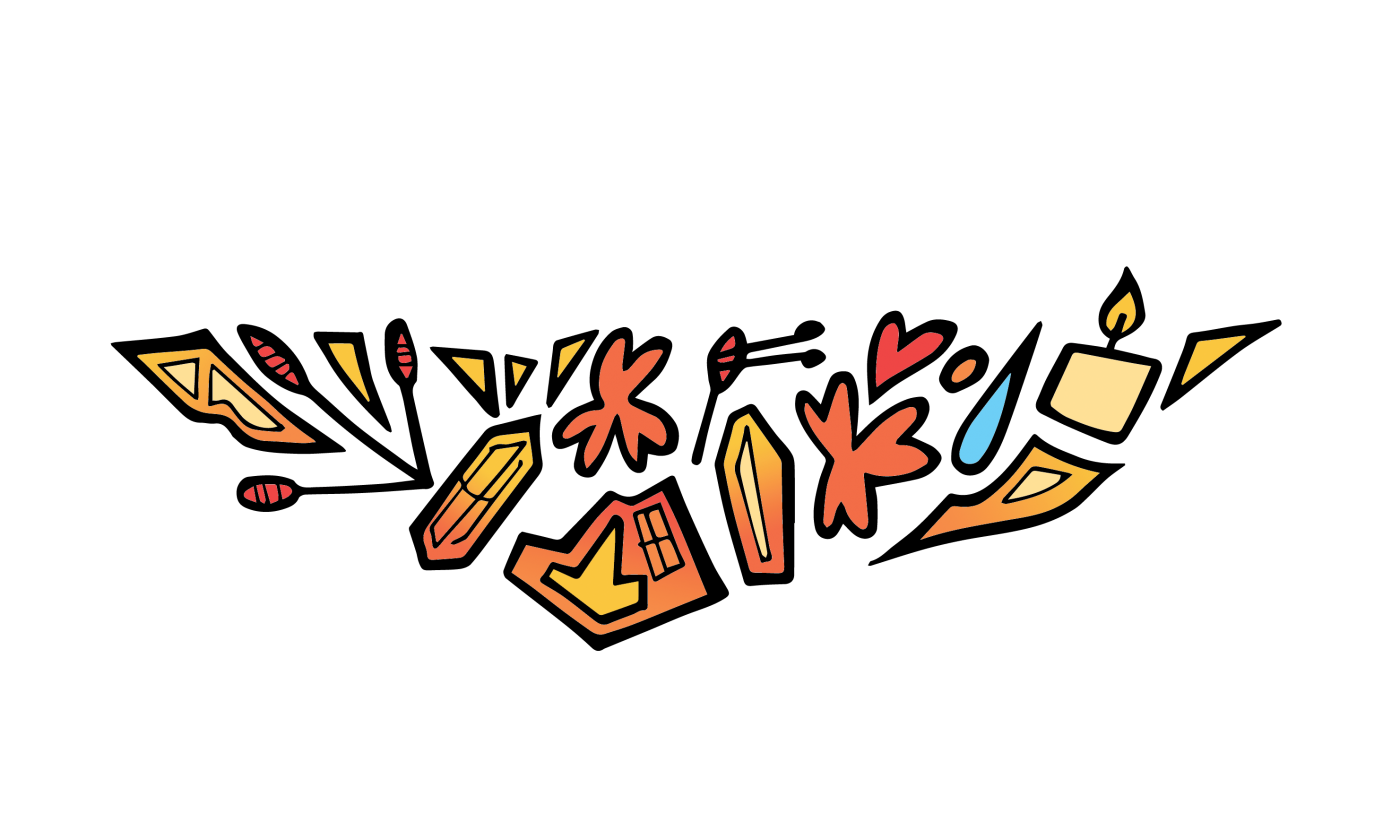
NILU: I love the name MISERY. It’s really funny and pretty radical. Why did you decide to call it that?
AISHA: There is pressure on everyone, but particularly people of colour, queer people, marginalised people, to be happy and strong and fierce and inspirational and hot. We so often hear accounts from people who have been miserable, once they have found their way out the other side of it, as though sadness can only be tolerated in hindsight. No one wants to be sad all the time, but MISERY is an invitation to come as you are, to talk and heal collectively, to be sad or quiet in public, to celebrate, and to give gratitude for those before us and around us who have not had that option.
NILU: Where did the idea of throwing a mental health centred, sober QTIBPOC party come from?
AISHA: I wanted to fuse my interest in music, nightlife and mental health by creating a nightlife space where sad people and introverts might feel comfortable. It became obvious pretty quickly that in order to really try to create a mental health centered space we would need to make it sober. Sobriety means a lot of different things to different people at different times and in that way it also became a really exciting opportunity to collectively reimagine the idea of sobriety – to hopefully make it more accessible and healing and less judgey and moralistic. The idea came partly from conversations I had with a friend in the days before they killed themselves, about how they wished there was a place they could go and be around other queer people of colour and be their whole, depressed self. I wanted to experiment with the idea of truly coming as you are.
NILU: Now you’ve created this space where people are actively encouraged to be sober — to be conscious and fundamentally to feel. Isn’t this also profoundly terrifying for many people?
AISHA: I never thought of it as terrifying – but I’m a very ‘feel your feelings’ kind of person, so the masking of real feeling or thought or need or desire will always be scarier to me than being present. My fears were around creating something that was irrelevant or even harmful to our community, or of missing the mark and failing to communicate and hold the intention in the space. Like, how can you responsibly ask people to risk being sad in communion? What are the limits on that? Is it pretentious? We are still learning so much through MISERY but the audience it has attracted is just incredible. It’s like they understood the point completely. I think for some people it’s the first time their race, gender, sexuality and unfiltered mental health can hang out together and that in and of itself is both melancholy and joyous.
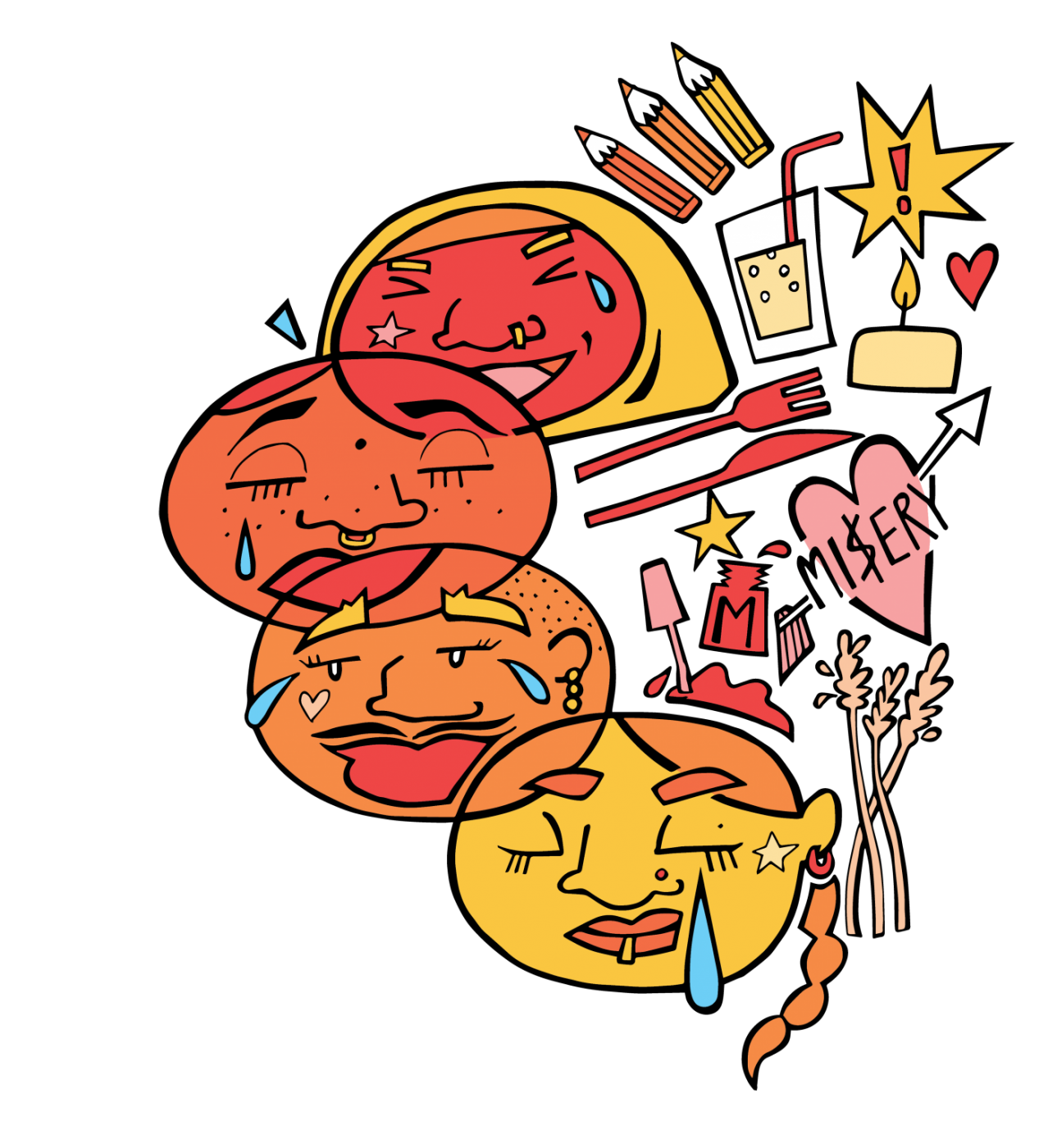
NILU: I’m really into the ‘One 2 Hun’ idea within misery party — could you tell me a bit about it?
AISHA: One 2 Hu is a new service, where we have a QTIPOC therapist at the event, and they have their own quiet space and people can come speak to them – like a half-hour drop-in service. It’s not a crisis service because we can’t do that, and it’s not like therapy, but it’s like… do you have something on your mind like that you would like to talk about? Is there something you need to share, do you need to be signposted to somewhere else, do you have questions about therapy itself? The thought process behind that was just trying to break down barriers between people of color and wellbeing services.
I’m a huge advocate of therapy and noticed, especially after living in New York for a few years, the mental and material blocks for QTIBPOC in accessing therapy in the UK. I’ve been working with QTIBPOC therapist-in-training Sabah Choudrey. We thought, if the queers love the club and they need therapy, let’s bring therapy to the club and see what happens. It’s going very well so far and I feel really pleased to be able to offer it as a free service due to everyone’s support of MISERY.
NILU: You have such amazing talent at MISERY. Lots of different kinds of QTIPOC ‘healers’. Could you tell us a little bit about them?
AISHA: Yes! We have a gorgeous crew of QTIBPOC MISERY healers and helpers who, like most people involved, have gone above and beyond to support and grow the project and bring such love and care to the space every time. There’s Ama who does massage and trauma-informed bodywork, Sabah who is our One 2 Hun therapy practitioner, Jon who runs a genderless nail bar, Grace who is an incredible witch offering tarot and birth charts, and much more.
NILU: One of the my favourite aspects of misery is that it not only relies specialised healers, but really the vibe is carried by everyone. Mutual healing is really the foundation of this project and I guess what I’d love to know more about is why this sense of community is so important for us as a community?
AISHA: One of the things that I personally find difficult about depression is knowing you need other people to survive it but not wanting anyone to look at you at the same time. It’s so painful. I never would have imagined the energy, vulnerability and vast care that everyone who comes to MISERY brings with them. It’s so so nurturing to know that people have so much momentum to offer something so delicate, and at times sad and quiet. This one’s for the introverts.
Aisha Mirza is a writer and DJ, and the founder of MISERY.
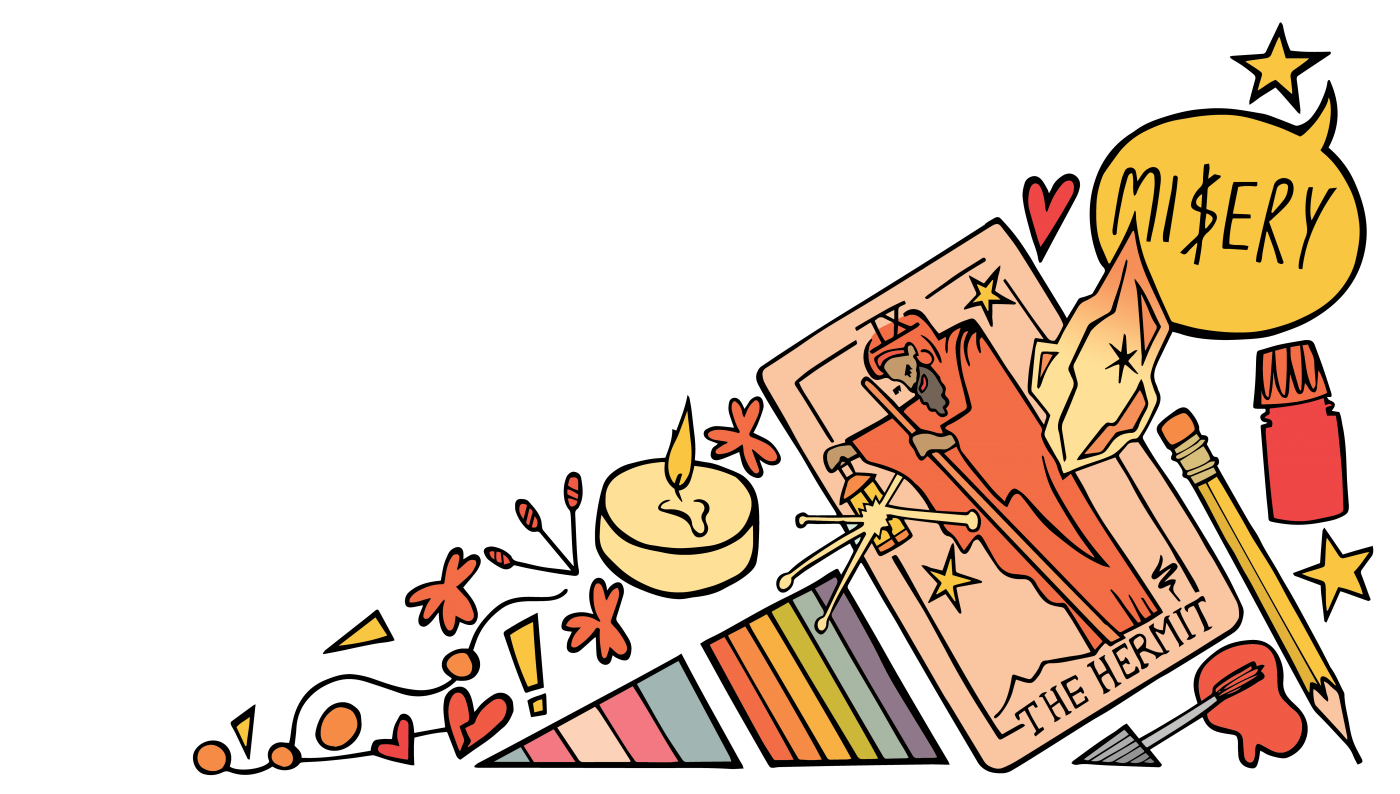
Image: Tamara-Jade Kaz





